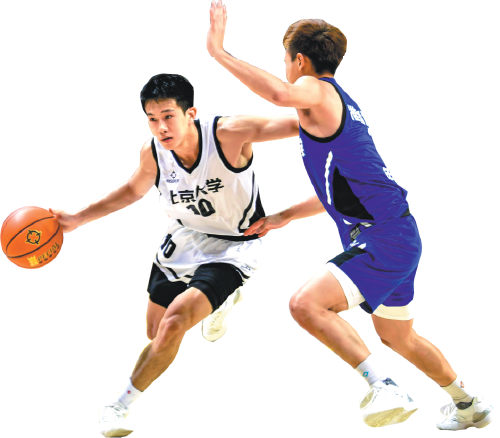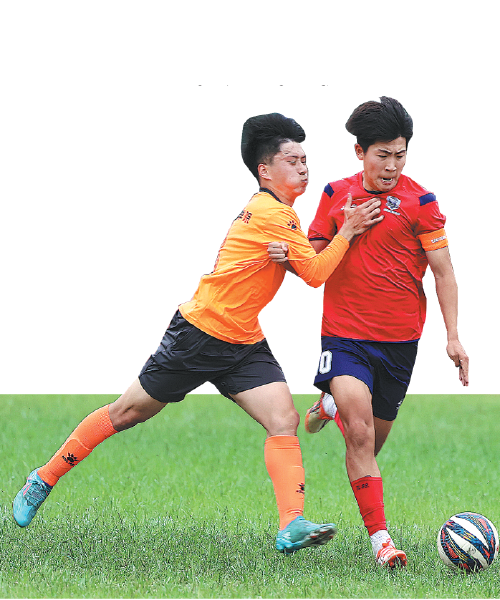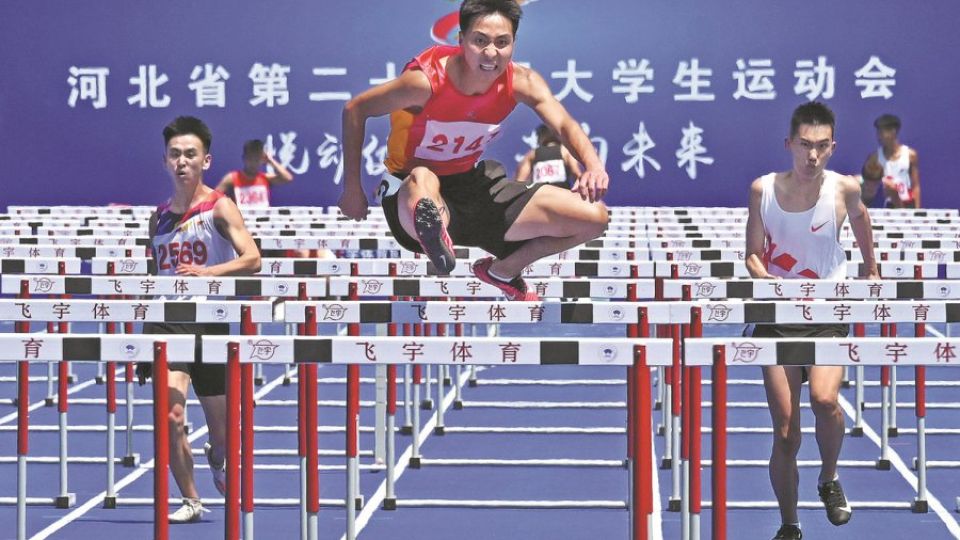August 10, 2023
BEIJING – Games highlight growth of university sports development
Many student-athletes saw their sporting dreams come true at the Chengdu FISU World University Games, which ended in the Sichuan provincial capital on Tuesday.
A spectacular stage for the athletes to perform to their best, the games marked not only career milestones for the competitors, but also bore testimony to the rapid growth of university sports development in China.
Liu Lixin, deputy head of the Chinese delegation and vice-president of the Federation of University Sports of China, said, “The games are not just a great platform for student-athletes from across the world to compete together, they also offer a great opportunity for the students to show their sporting spirit to the world.
“The participation of the Chinese delegation is the best showcase for the growth of university sports in the nation in recent years. Facilitating such development is important in improving the physical health of our students, and a crucial way to find and nurture future sports stars.”
“The stories of Chinese student-athletes who excel at these Games by showing an exemplary sporting spirit can attract more young people to learn about, embrace and love sports. Taking part in sports is highly beneficial to students, as it brings them fun, makes them healthier, and forges a strong mentality.”
The Chengdu FISU Games attracted 6,500 student-athletes from a total of 113 countries and regions. The Team China delegation comprised over 700 members. The average age of the Chinese athletes was 22.9 years, and the squad was gender-balanced, with women comprising 205 of the 411 athletes.
A number of young Chinese athletes did exceptionally well at the Games, including Xia Yuyu, who won gold in the women’s 10,000 meters. A student-athlete at Tsinghua University, Xia has been a regular competitor in many domestic and international long-distance running events. Notably, she was a winner at last year’s Beijing Marathon.
“I really want to thank my university, which helped me solve many problems during preparations for the Games in Chengdu. It’s not been easy for my coach, who has had to attend to all the details of my training and daily life,” Xia said.
“The great result I achieved should be credited to the terrific support from my university, my coaching team and the Federation of University Sports of China. They offer me a lot so that I can perform to my best ability on the track.”
This year’s event was Xia’s last competitive appearance at the Games. She said she pushed herself to the limit to achieve the best possible result. Before the Games, she ran for 30 kilometers during training each day.

University basketball players compete in a match in Chongqing this month. CHINA DAILY
“I don’t have any regrets in appearing at my last World University Games. I know how hard it is to win an athletics gold medal at these Games, so I just wanted to give it a try. I was determined not to give up,” Xia added.
“My biggest wish after winning is that my story can inspire more young people to embrace sports. Throughout my competitive career, I have aimed to show the best sporting spirit of a Chinese student-athlete. I have a never-say-die spirit, and I hope this will have a positive influence on the younger generation.”
The growth of university sports in China is not solely due to student-athletes, as coaches also play a crucial role — one example being Xia’s coach, Cao Zhenshui.
“No words can express my excitement. Xia Yuyu is a student with great ambition, and she has put in a lot of hard effort. We achieved our dream,” Cao said.
After graduating from Beijing Sport University, Cao joined Tsinghua University as a physical education teacher in the 1980s. Recalling that time, he said the equipment used was not up to standard.
The coach told China Youth Daily: “When I first took charge of the middle- and long-distance running team at the university, we didn’t have that many runners. It was hard for us to win a title at a municipal-level tournament in Beijing.
“We didn’t have enough equipment. A jersey bearing the name ‘Tsinghua’ was shared by several runners. One of them washed the jersey after competition, before handing it to another runner for the next tournament.”
Cao said that due to the growth of university sports in China, training conditions have improved rapidly in recent decades.
Now, with considerable support from the government and other areas of society, a number of promising Chinese student-athletes have shone on the world stage thanks to scientific training methods and state-of-the-art venues, facilities and equipment.

University students exercise and take part in a hurdles race. ZHAO QIRUI/HAO QUNYING/FOR CHINA DAILY
More than medals
However, not all student-athletes can win medals at events such as the World University Games. For the most of them, taking part in sports is important, as this can have a deep influence on their lives.
For example, failing to win a medal at the Games in Chengdu will not change the love of athletics harbored by Chinese twin brothers Xing Jiadong and Xing Jialiang. In 2020, they entered Peking University, and since childhood, sports have played a key part in their lives.
The twins’ father, a PE teacher at a middle school in Inner Mongolia autonomous region, specialized in events such as the shot put and discus.
Xing Jiadong, who finished ninth in the men’s discus at the Chengdu Games, said: “We learned these sports from our father when we were kids, and we trained more professionally in middle school. We first practiced the shot put, and then the discus. Our father initially just wanted us to have healthy bodies, but sports gradually became our hobby and passion.”
The twins attended middle school in Beijing, where they continued to train.
Xing Jialiang, who was born first, said this was quite a tough time for them. Each day, they had to train late at night after completing their school work, but their passion for sports and their support for each other helped them get through.
“If my brother trains alone, he might miss some details of his training, so I have to be there. We look after each other and offer advice and encouragement to one another. It’s always better for us to be together,” said Xing Jialiang, who finished fourth in the men’s shot put in Chengdu.
Despite failing to win a medal at the Games, the brothers’ love of athletics remains as strong as ever.
Xing Jiadong said: “I was so proud to attend the opening ceremony as a member of the Chinese delegation. I felt the passion of Chengdu and all the people here. This will be a lifetime memory for me. I will now train harder in sports and also at law school.”

University players take part in a soccer match in Shanghai in May. ZHANG WEI/FOR CHINA DAILY
Encouraging more students to embrace sports and adopt healthier lifestyles has always been a priority for the International University Sports Federation. The organization proposed and developed the FISU Healthy Campus program, which aims to enhance all aspects of well-being for students and campus communities in general.
FISU acting president Leonz Eder said: “It’s a mix of education, culture and sport. We also take great care of the huge number of students on campus who do not compete at the Games.
“Less than 1 percent of sports students worldwide make it to the top, but tens of millions of students need a healthy lifestyle and good nutrition. That’s why we started to promote the Healthy Campus program.”
A number of elite coaches and team leaders, including former Olympic and world champions, are behind the student-athletes who excelled at the Games in Chengdu, and the coaches’ participation in university sports is always welcomed.
One such example is Ding Ning, who joined the Chengdu Games as deputy leader of the Chinese table tennis squad.
“I just told the players competing in the World University Games for the first time that they needed to be focused, play each match well, and have the best preparation,” Ding said.
“A young player told me days before the Games that she was very nervous playing in front of a home crowd. I told her that she needed to get used to the noise from the stands and consider it as support.”

University students exercise and take part in a hurdles race. ZHAO QIRUI/HAO QUNYING/FOR CHINA DAILY
Competitive return
Ding, one of the most iconic players in the history of Chinese table tennis, won a gold and a silver medal at the 2012 London Olympics, before pocketing another two golds four years later at the Games in Rio de Janeiro, Brazil.
After retiring in 2021, Ding pursued postgraduate studies at Peking University, where she graduated last month. She then returned to competition in Chengdu in a new role as deputy team leader.
“Training philosophies have evolved in university sports. For example, we used to focus solely on skills, but now we place more emphasis on the overall physical condition of an athlete. We also have smart equipment to monitor athletes’ vital signs during training, which is very useful in prolonging their careers and avoiding injuries,” Ding said.
Chinese badminton icon Li Xuerui, who won the women’s singles gold medal at the 2012 London Olympics, was a star coach at the Chengdu Games.
“I’m proud to coach the Chinese badminton squad at the Games. They trust me, and I shoulder this responsibility. I just want to pass my experience on to the younger generation of players,” said Li, who retired in 2019 before becoming a university badminton instructor.
“I never took part in the World University Games as a player, but student-athletes can always make an impression with their energy and vitality, and I love the atmosphere at the Chengdu Games,” Li said.
“From being a player to becoming a teacher, my roles have changed, and the feeling is very different. When I was a player, I just focused on myself, but now I have to think more about my students and how to attract more people to the sport of badminton.
“The World University Games are a great platform for young student-athletes to experience a major international event. The experience they have gained in Chengdu will inspire them for sure.”


